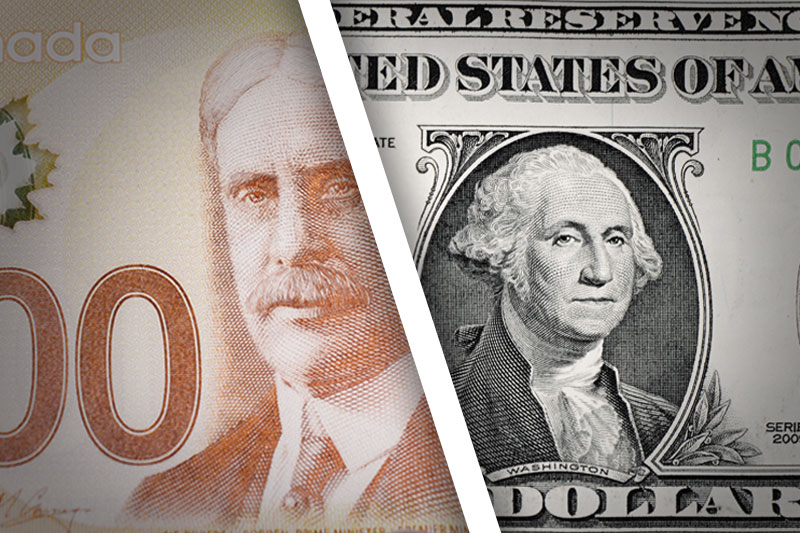Forexpros - The U.S. dollar hit a 19-month high against its Canadian counterpart on Friday after softer-than-expected inflation and retail sales data repelled investors away from the loonie.
The dollar, meanwhile, continued its across-the-board advance against most currencies on growing expectations for the Federal Reserve to begin scaling back stimulus measures in the coming months.
In U.S. trading on Friday, USD/CAD hit 1.0468, up 0.80%, up from a low of 1.0363 and off a high of 1.0488.
The pair sought to test support at 1.0363, the session low, and resistance at 1.0523, the high from Nov. 25, 2011.
Canada's official core consumer price index, which excludes volatile food and energy items, rose 0.2% in May, missing expectations for a 0.3% gain after a 0.1% increase the previous month.
The broader consumer price index rose 0.2% last month, disappointing expectations for a 0.4% increase, after a 0.2% contraction in April.
A separate report showed that core retail sales in Canada, excluding automobiles, fell 0.3% in April, compared to expectations for a flat reading after a 0.3% decline the previous month.
Broader retail sales rose 0.1% in April, missing expectations for 0.2% increase, after a flat reading the previous month.
The dollar continued to advance after the Federal Reserve Bank of Philadelphia said Thursday that its manufacturing index rose to 12.5 in June from -5.2 in May, well above expectations for a -2.0 reading.
A separate report showed Thursday that U.S. existing home sales climbed 4.2% to 5.18 million units in May from April’s total of 4.97 million, far surpassing market calls for a 0.6% increase.
Fed Chairman Ben Bernanke said earlier this week that monetary authorities could begin scaling back the U.S. central bank's USD85 billion-a-month asset purchasing program later this year and close it down completely by the middle of 2014 if the economy gains steam.
The Canadian dollar, meanwhile, was up against the euro and down against the yen, with EUR/CAD down 0.07% and trading at 1.3720 and CAD/JPY down 0.28% at 93.37.
The dollar, meanwhile, continued its across-the-board advance against most currencies on growing expectations for the Federal Reserve to begin scaling back stimulus measures in the coming months.
In U.S. trading on Friday, USD/CAD hit 1.0468, up 0.80%, up from a low of 1.0363 and off a high of 1.0488.
The pair sought to test support at 1.0363, the session low, and resistance at 1.0523, the high from Nov. 25, 2011.
Canada's official core consumer price index, which excludes volatile food and energy items, rose 0.2% in May, missing expectations for a 0.3% gain after a 0.1% increase the previous month.
The broader consumer price index rose 0.2% last month, disappointing expectations for a 0.4% increase, after a 0.2% contraction in April.
A separate report showed that core retail sales in Canada, excluding automobiles, fell 0.3% in April, compared to expectations for a flat reading after a 0.3% decline the previous month.
Broader retail sales rose 0.1% in April, missing expectations for 0.2% increase, after a flat reading the previous month.
The dollar continued to advance after the Federal Reserve Bank of Philadelphia said Thursday that its manufacturing index rose to 12.5 in June from -5.2 in May, well above expectations for a -2.0 reading.
A separate report showed Thursday that U.S. existing home sales climbed 4.2% to 5.18 million units in May from April’s total of 4.97 million, far surpassing market calls for a 0.6% increase.
Fed Chairman Ben Bernanke said earlier this week that monetary authorities could begin scaling back the U.S. central bank's USD85 billion-a-month asset purchasing program later this year and close it down completely by the middle of 2014 if the economy gains steam.
The Canadian dollar, meanwhile, was up against the euro and down against the yen, with EUR/CAD down 0.07% and trading at 1.3720 and CAD/JPY down 0.28% at 93.37.
